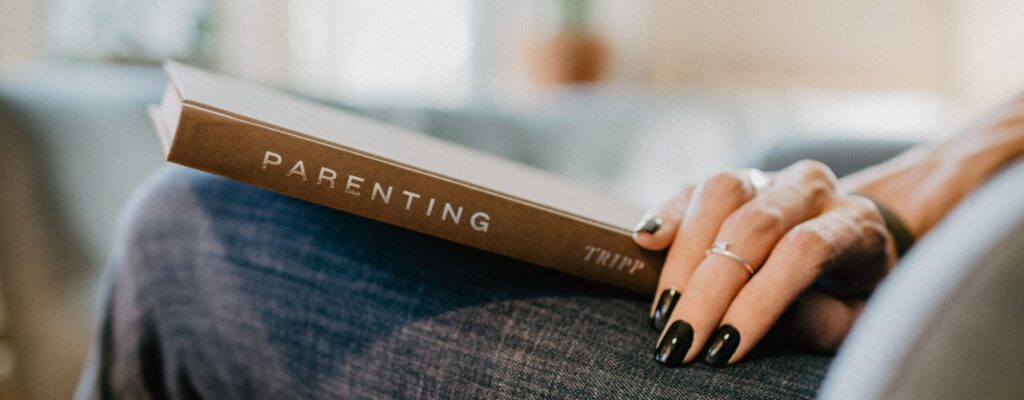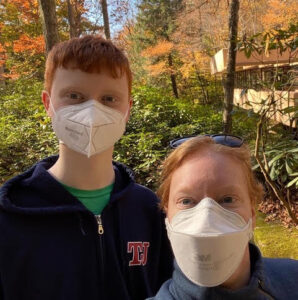Coping | Daily Life | Disability | IBD

How do you get a teenager to put away their laundry?
No, it’s not a riddle with a clever, pun-like answer. It’s a real-life quandary of desperation from the mom of an almost 16-year-old. How do you get them to recognize that they need to clip their fingernails or put on sunscreen, without nagging? How can you help them to build bodily autonomy, so that when you send them off into the wide and wild world, they’re ready and able to become the responsible and attentive adults you know they can be?
Autonomy is the name of the game in our house recently with an 11-year-old and a 15-year-old. I’m trying to wean my way out of nagging and hovering while encouraging my teen’s independence and self-initiative. He so desperately wants to do things on his own terms, but they are rarely the things I would like him to be aware of and learn. “I want to stay up late. I want to go out all day with my friends (translation: and skip doing homework). I want to close my door all the time and never come out of my room. I want to have no limits on my cell phone. I want to play video games all night. I want to exist solely on pizza and ice cream.” Are your eyebrows raising as much as mine?
How about we try, “Would you please do the dishes without my asking? Wear a sunhat when you’re in Gym class outside. Clean your bathroom each week. Be kind to your sibling. Participate in family dinners and evenings together. And, eat a carrot, or five.” A mother’s reminders are never just about refilling the toilet paper in the bathroom. They’re always a desperate wish that your child will learn to look up, pay attention, take notice, and take action. That’s what personal autonomy is all about. It’s about knowing that you have the ability to do things, the power to fix things, and the desire to make things better, and that your actions have power. I wish there was a manual that told me how to get through this phase of motherhood.

Kelly with her teenager!
The answer is always in the middle: to meet my child where he needs me to be, to give him the space to try and fail and try again in a safe environment. Autonomy doesn’t develop overnight. It’s modeled, practiced and refined, and ultimately, it’s all about his body, his mind, his choices and his actions. His sense of what the shape of his world will be is different from mine, and it’s on me as a mother to let that expectation go and to let him grow into the adult he wants to be.
I was very glum this week, and not just because my kid, once again, slept in late and left me with the dishes (It’s okay, he did them in the evening and apologized unprompted and made a plan to do better next week in the mornings – talk about a measure of success!). But, after a recent GI appointment, I was feeling yet again like a grand, failed, pharmaceutical experiment in a rebellious and damaged human body. I’m scheduling yet another colonoscopy, more bloodwork, increasing my new biologic injections to every week, and desperately hoping that these changes will have a positive outcome on my almost-year-long Crohn’s flare.
And in a grand, revelatory, light-bulb moment, I realized that we IBDers have little to no autonomy. Our bodies are most certainly not doing a good job at self-governance. We’re in a state of constant war with our immune systems, punctuated by tentative truces between hostile factions (I’m looking at you TNF-⍺ molecules). I’m suspicious and on edge about my biology all the time, in a way that I know that other people without autoimmune conditions or chronic illnesses don’t ever have to consider.
So, while I’m struggling to teach my teen how to care for his own body, speak up for himself in important situations, and budget his money wisely, I am simultaneously living through a world where I have little to no say over my own autonomy. In order to monitor and diagnose these diseases, we IBDers are put through a myriad of invasive tests. We tolerate the worst of indignities, what other people make the butt of their jokes (get it?). I’m not laughing though.
We learn to exercise our right to human dignity however we are best able, through warm blankets at an infusion, or an extra gown and cozy socks before a scope. To breathe through the worst of it, hoping that the data we are gathering will help us regain some measure of control over these terrible diseases. I have dialed down my “give-a-shit” quite a bit recently because there is no choice for me anymore. I cannot opt out of these regimens of testing and treatment, not if I want to get out of this flare and into a place of stability and better health.
When my kids were little, I did my best to give them choices that would empower them so that we could avoid melt-downs and they could learn to exercise their own small autonomies. Having a choice between red socks and blue socks may not seem big to us as adults, but to a toddler, it is a critical decision, one that ultimately distracts them from the fact that they’re actually going to have to put on those socks before we go to the park.
Sometimes my brain needs to be treated like a misbehaving, grumpy toddler, too. So, I give myself choices and rewards for hard work and tough times: am I going to have a cookie or a cupcake after this big blood draw? Am I going to watch a new K-drama or read a new book at my next MRE while I chug the contrast? Brain hacking is a powerful tool, but it doesn’t change the fact that I am constantly grieving the loss of those times when I simply didn’t have to choose between bad and worse.
Surprisingly, offering a cookie to a grumpy teenager has a higher rate of success at changing their attitude than you’d expect. So if you too are in the midst of these tough teen years, I’m sending you solidarity and compassion (and some cookies for you both). I hope we Moms can all regain a small measure of our own autonomy while living with IBD. And I hope you can figure out some way to get your teenager to close the toilet lid so the cats don’t discover that they now have a swimming pool! Best of luck to you, Mom.
About the Author
Kelly Dwyer is a writer, mother and instructional designer from the  Washington, DC metro area who has been living with Crohn’s Disease for 20+ years.
Washington, DC metro area who has been living with Crohn’s Disease for 20+ years.
You can find her @deviousdwyer or www.deviousdwyer.com.
